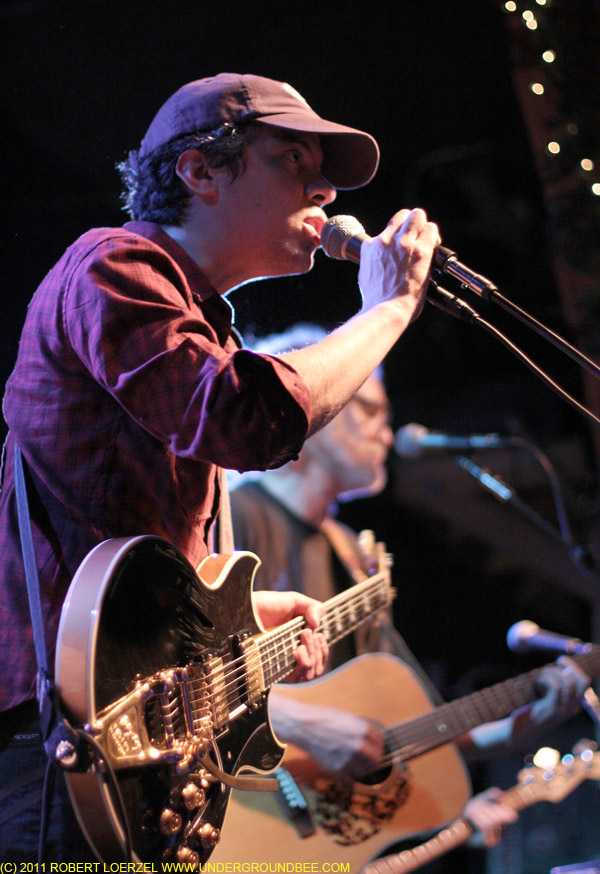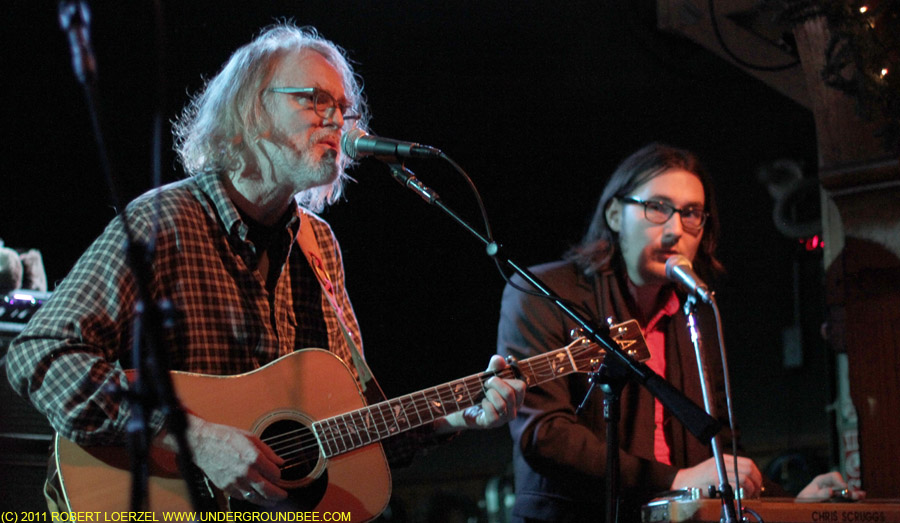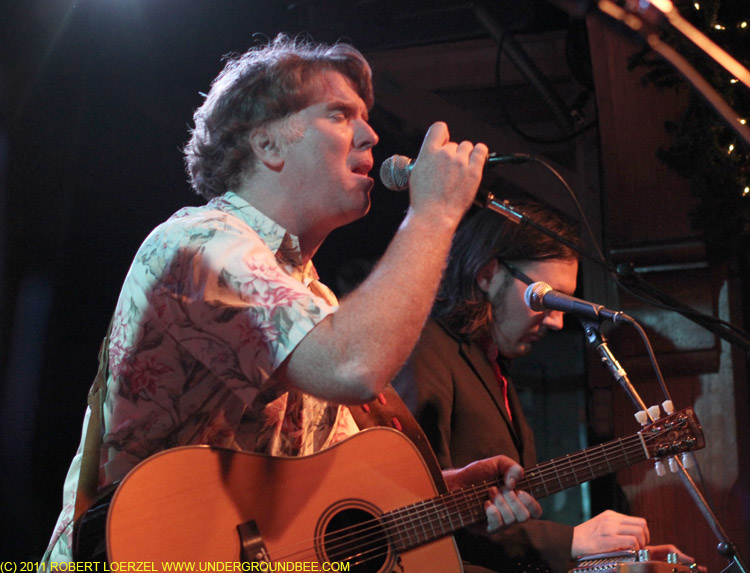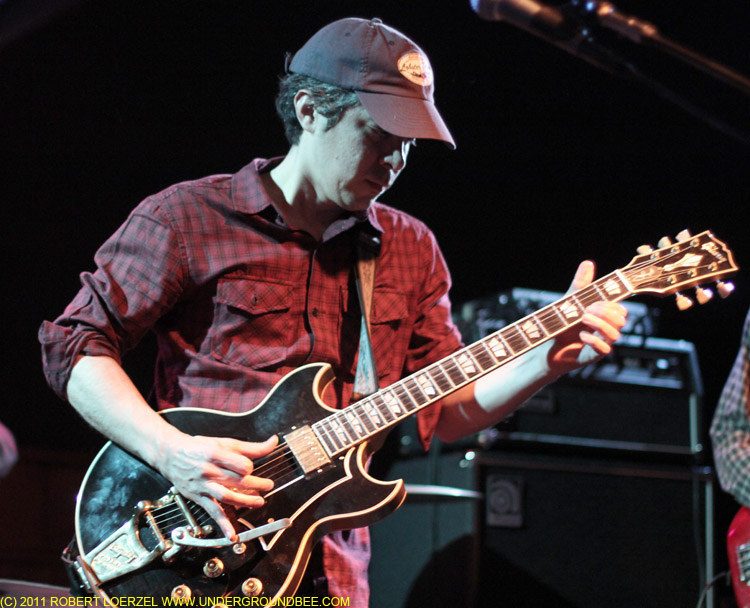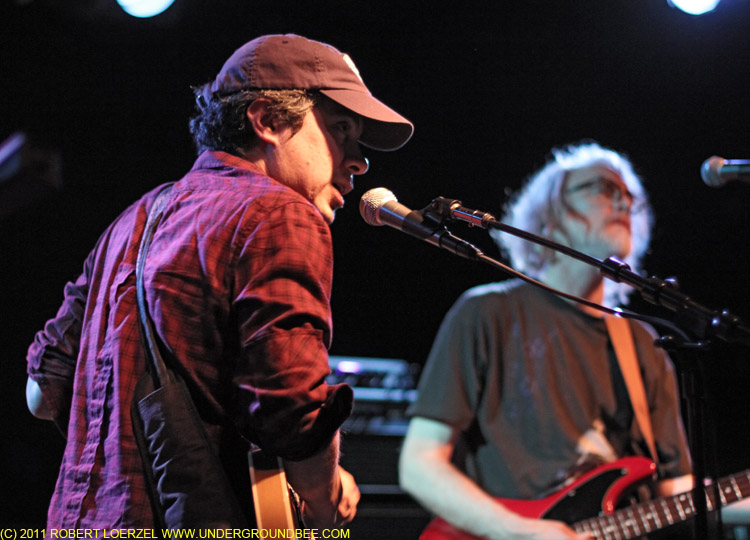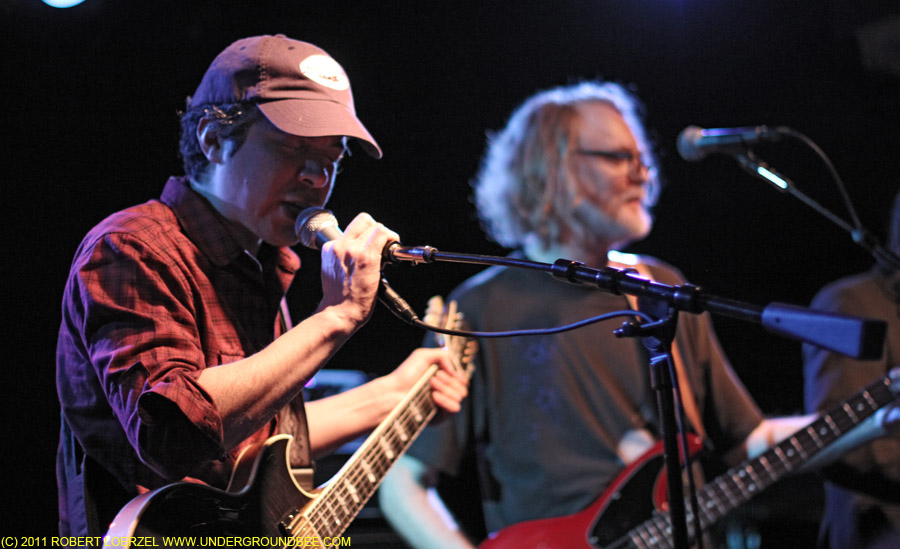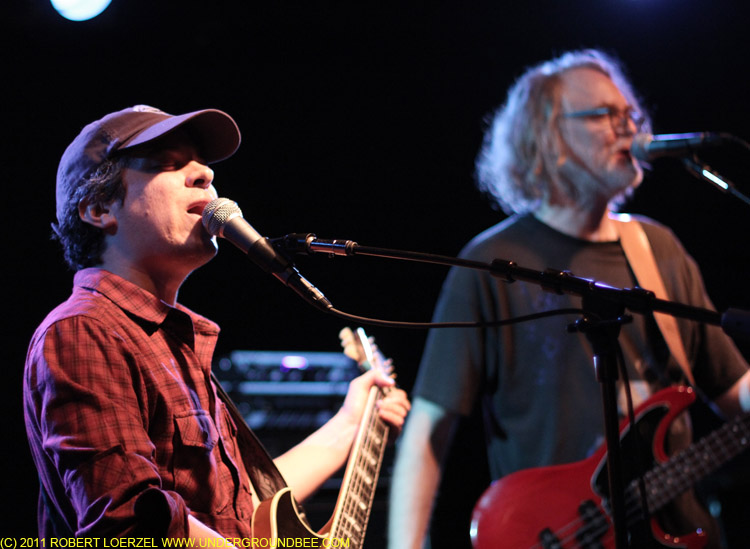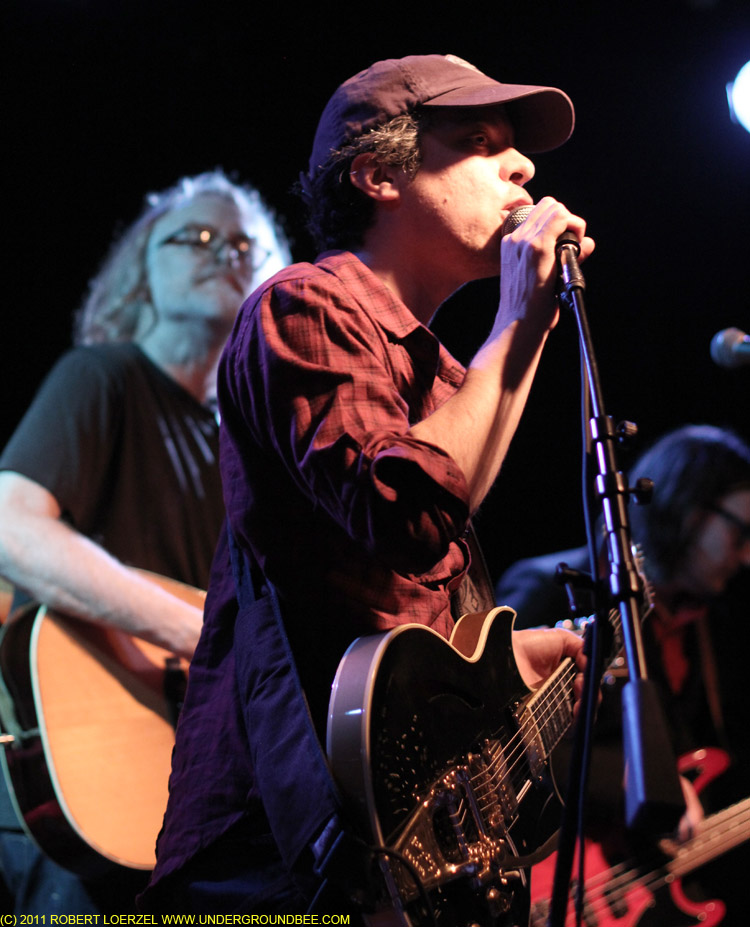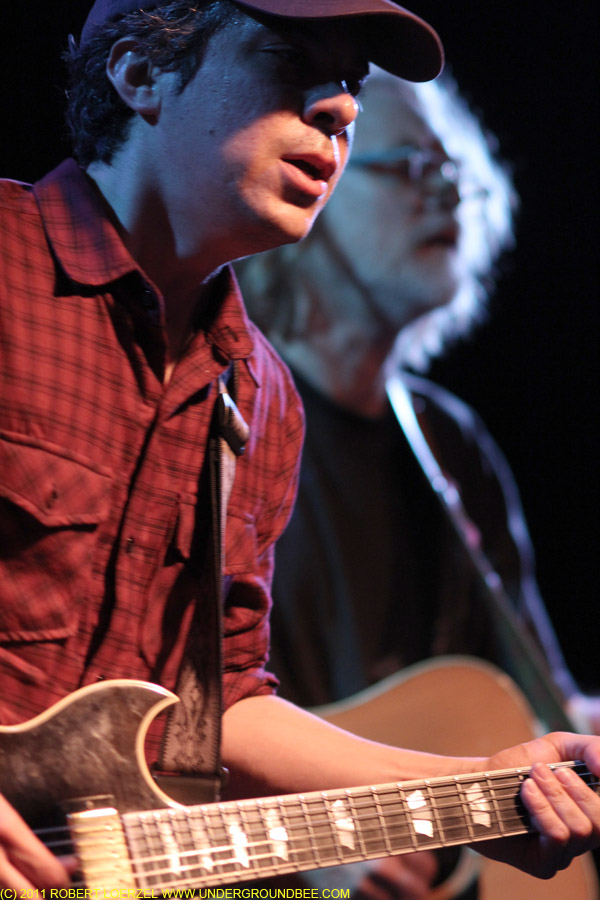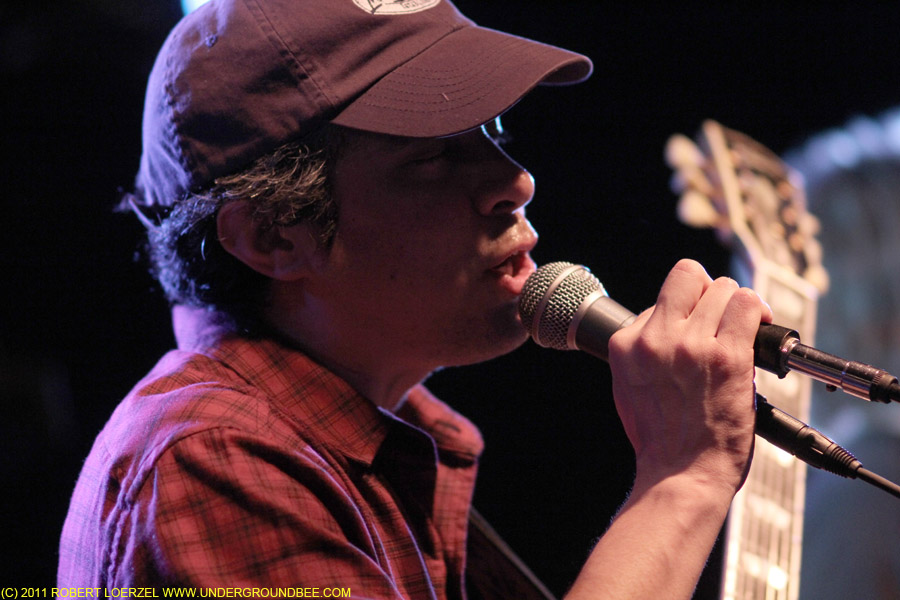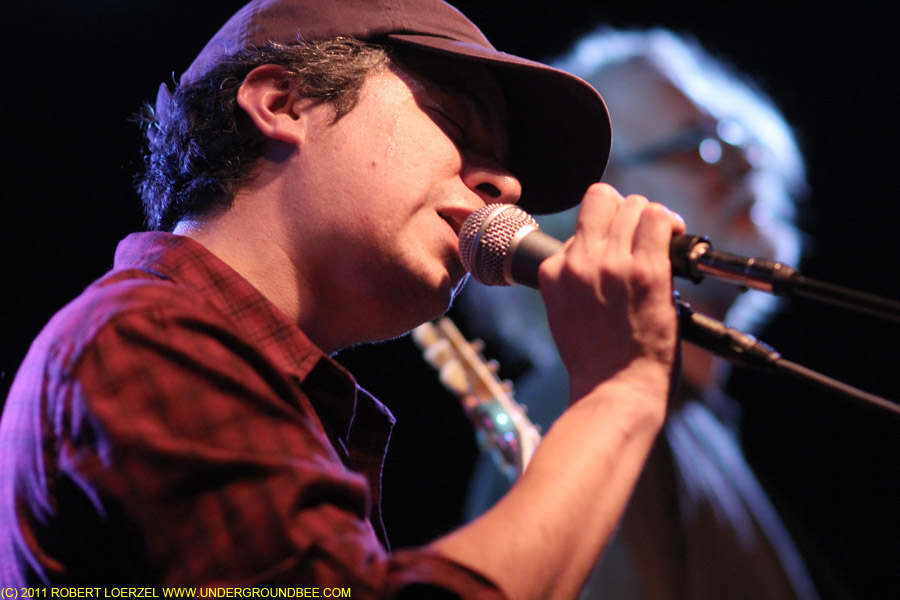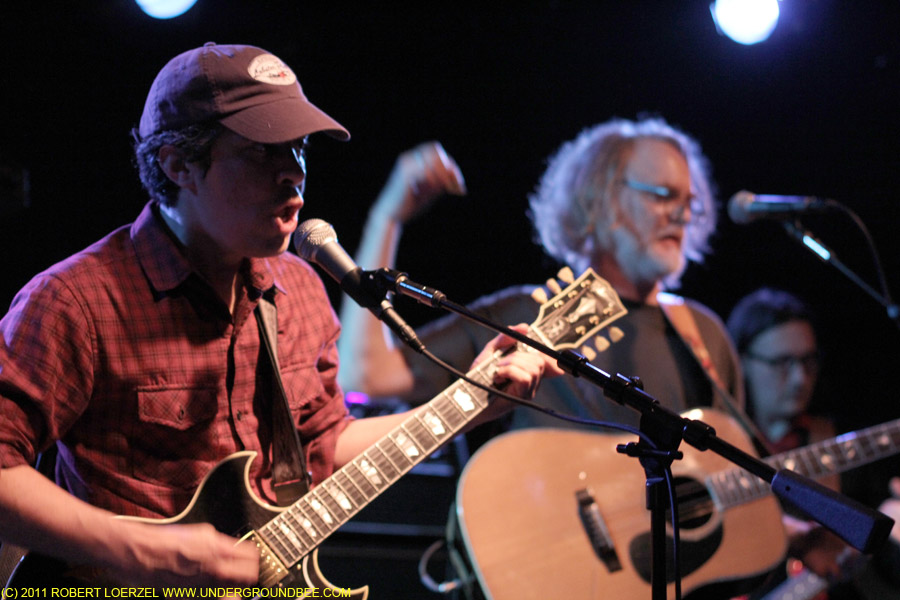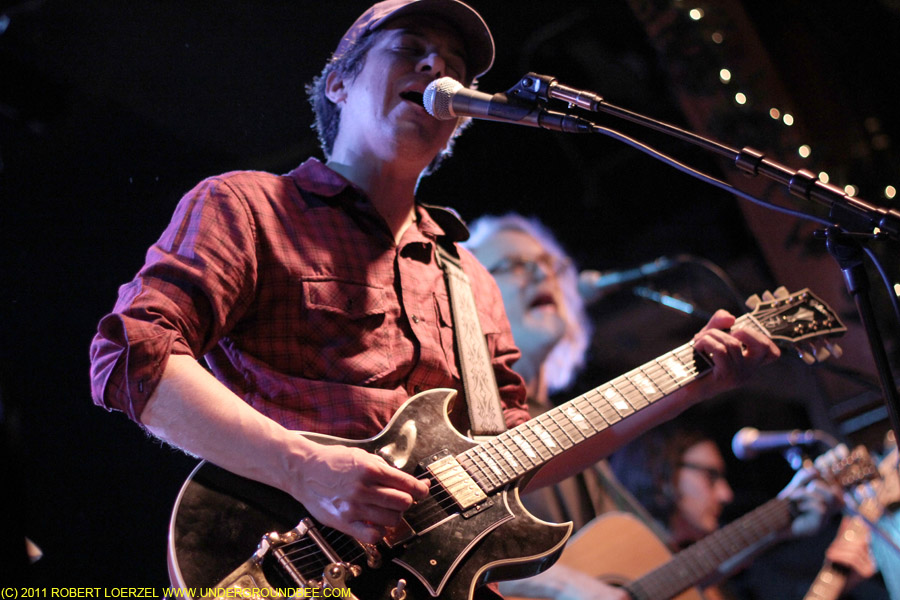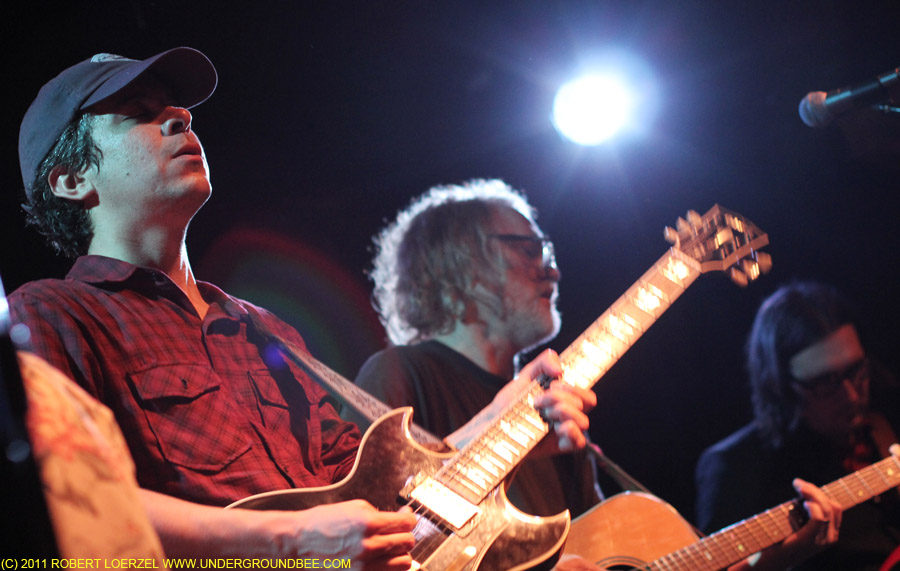The Underground Bee has been out of commission for a month or so… I was too exhaused by the big SXSW 2005 extravaganzato pay much attention to updating this site. It’s time to catch up. But first, here is an actual letter to the editor I received recently. (The authenticity of the signature is open to question, however.)
I have perused the “Underground Bee” Web site, and I have to admit I am quite disappointed. There is much blathering on about Rock Bands and nary a mention of honey, beeswax, hives, drones, queens and such. I found a reference to something called “Bee Thousand,” but did not understand its meaning. In the future, please try to add items that might be of interest to the striped population.
Sincerely,
Buzz Aldrin

Well! I must admit I keep promising to expand this site’s purview beyond the aforementioned “blathering on about Rock Bands,” without fulfilling said promise. One of these days… I promise. I am far behind on my bee research.
Now, back to the blathering… Some recent concerts:
MARCH 25 — Orchestra Baobob at the HotHouse. This was the third time I’ve seen this fantastic band from Senegal. The grooves sounded as great as ever. Everyone was moving on the dance floor. PHOTOS.
APRIL 1 — The Kills at the Double Door. I have to plead ignorance about the music of the Kills — I just listened to a little bit of their new album online as I decided whether to see this concert. I was intrigued when some critics compared the Kills to P.J. Harvey. I’m not sure that I see that much of a connection, but the Kills certainly put on a pretty darn entertaining concert. Guy on guitar, plus girl on vocals (and occasional guitar), plus drum machine. The spare lineup left them room to cavort across the Double Door stage, working up a good sweat. I will definitely be checking out the Kills’ music after seeing this show. Opening act Scout Niblett was simply tiresome. PHOTOS.
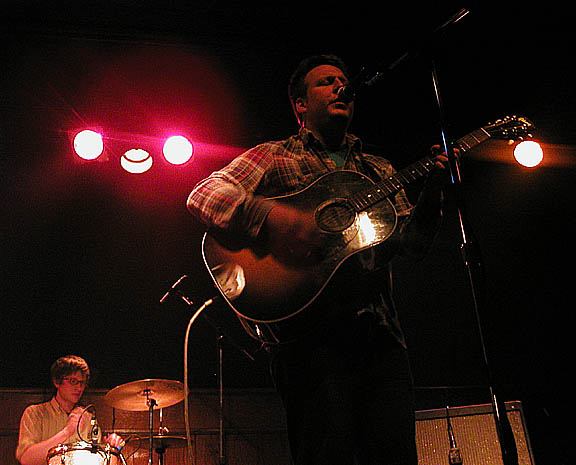
APRIL 3 — Dolorean at Schubas. The club was pretty empty as Dolorean took the stage at 11 p.m. on a Sunday, just 25 to 30 people sitting around to hear Dolorean’s lovely, quiet folk-pop. Bad timing, I suppose. Can’t these Sunday-night shows begin a little earlier? Anyway, Dolorean (which is mostly singer-songwriter Al James) sounded good live, and the lack of fans didn’t detract from my enjoyment. In fact, it made it seem more like James and band were playing a personal gig for the few fans in the place. One of the opening acts, Jeff Hanson, had an amazingly feminine voice, though this guy didn’t look the least bit androgynous. His songs sounded pretty good on first listen, falling somewhere in Jeff Buckley/Nick Drake territory.
APRIL 9 — Magnolia Electric Co. at Schubas. I‘m still not convinced that the 2003 album titled Magnolia Electric Co. was actually by the band called Songs:Ohia. That name doesn’t appear anywhere on my copy of the disc (though I’ve seen copies with a Songs:Ohia sticker). In any case, Jason Molina is now officially calling his band Magnolia Electric Co., and it is a first-rate group. Neil Young and Crazy Horse comparisons are inevitable, but Molina has his own distinctive voice. I like its natural quality. While he doesn’t do a Mark Knopler talk-singing thing, I get the sense that his singing comes straight out of his speaking voice. There’s something very conversational about it. And I love those deep-pitched solos that he plays on the lower strings of his guitar. Three members of Magnolia Electric Co. served as the opening act, playing in the incarnation known as the Coke Dares. Their shtick is playing very short songs in rapid succession, always being sure to say the name of each song. It was quite humorous. I’ll have to hear the songs on CD to say how worthwhile they are, but the Coke Dares seemed to pack a lot into each little burst of music. PHOTOS.
APRIL 15 — Paul Westerberg at the Riveria. He smashed a TV, a telephone and a guitar. He played a lot of his recent solo songs and a few odd covers (“If I Had a Hammer,” “Different Drummer”). He took swigs of whiskey. The concert degenerated into a series of aborted songs: one verse of “Like a Rolling Stone,” half of “Substitute,” a few chords from “Sweet Jane,” the riff from “Cat Scratch Fever.” His band anxiously awaited his next move. Someone got up to leave from a balcony seat and Westerberg said, “Hey, don’t you dare walk away!” Westerberg was falling down on the stage as he played his guitar. Was it all an act? He threw the microphone out into the crowd during “Can’t Hardly Wait,” and then jumped off the stage himself. End of show. Would he bother coming back for an encore? Yes! Glorious versions of “Alex Chilton” and “Left of the Dial” ensued. Was this concert a train wreck? Yes, at times, but it also had moments of triumph.
APRIL 16 — Andrew Bird at Metro. I had the honor of interviewing Mr. Bird recently, and it’s always an honor to see him play live. He’s still doing his amazing one-man band act, using a sampler pedal to loop various string and guitar sounds, building a song from the ground up right in front of the audience. That’s fascinating to see and hear, and it helps that the songs are so good. Kevin O’Donnell was with him on drums tonight, adding jazzy percussion. Bird actually slipped up a couple of times as he tried to juggle all of the musical balls — but in an odd way, that made his act all the more impressive. It makes you realize how difficult it is to pull off perfection. Near the end of the show, one round of applause swelled beyond the typical cheering, and I sensed a genuine outpouring of affection and appreciation from the crowd. Opening act Archer Prewitt put on a fine set, with his soft, jazzy art-pop songs building into catchy grooves. It was nice seeing Dave Max Crawford, who works as a Metro bartender, on the stage as part of Prewitt’s band, drawing a big hand for a trumpet solo.
APRIL 17 — Damien Jurado at Schubas. Somehow, I’ve missed seeing Jurado in concert until now. I was tempted to see Elvis Costello over at the Auditorium tonight (I’ve somehow missed seeing him in concert, other than one show back in 1989), but I just couldn’t blow off Jurado again. Jurado is one of those singers who doesn’t look the least bit like a rock star, which makes him seem all the more real. He sat down for the whole show, getting up once to go back and play drums for one song. A nice mix of Jurado’s quiet acoustic songs and some rockers, like “Paper Wings.” Responding to an audience request, he played “Ohio” from Rehearsals for Depature, noting that he was heavily medicated (from hospital drugs, not illicit ones) at the time he wrote most of the songs for that album, so he doesn’t really remember the experience. I picked up a copy of that CD on the way out — I owned it once before, but then it was stolen from my car. I wonder if the thieves ever listened to it? PHOTOS.
APRIL 20 — M. Ward at the Abbey Pub. Another musician I enjoyed interviewing recently. And as I mentioned before, I am waging a campaign for the recognition of M. Ward’s current supremacy in the musical firmament. So of course I enjoyed this show, which featured Ward playing with a full band, his pals in the group Norfolk & Western. The concert had its share of quiet acoustic moments, but it also rocked, especially with songs such as “Big Boat,” “Vincent O’Brien,” “Four Hours in Washington” and “Sad Sad Song.” It’s nice how much Ward varies his live performances. “Fuel For Fire,” which he played on piano at Schubas in February, was back to being an acoustic guitar song this time around, but with a really well-played harmonica solo added to the intro. His Carter Family cover, “Oh Take Me Back,” which is just a short ditty on Transistor Radio, began with an extended bluesy instrumental section. Despite his renown as a guitarist, Ward felt comfortable enough with his role as frontman to take his hands off the guitar and just sing at times. And at other times, it was possible to hear a tiny bit of the surprising influences he mentioned in my interview with him: Sonic Youth and Firehose. None of his music would be confused with those bands, but at a few of the concert’s loudest moments, he did make some dissonant noise with his electric guitar. Norfolk & Western had its own slot as the first opening act, playing melodic folk rock, followed by Devotchka, which played artsy cabaret music — a little like Calexico, with whistling, violin and accordion Interesting, I thought, though obviously not for all tastes. The crowd seemed to dig it. …Speaking of which, the M. Ward crowd was quite young, and I spotted a Bright Eyes T-shirt. Maybe he’s picking up some fans from his tours with Conor Oberst. PHOTOS.
APRIL 21 — Yo La Tengo at the Vic. You might take it as a bad sign that I kept nodding off during this concert, but I’d put the blame more on lack of sleep than lack of interesting music. Yo La Tengo started off the concert with a long instrumental drone, three keyboards going at once, bearing some similarity to Wilco’s much-hated electronic experimentation on “Less Than You Think.” Personally, I like this kind of thing, in small quantities, at least, and I thought this was a daring way for Yo La Tengo to start off its show. (Plus, it gave me time to catch a few winks.) The trio kept things eclectic at this concert, with punky garage rock, super-hushed mellowness and tropicalia. They even did a little dance routine. Somehow, it all sounds distinctly like Yo La Tengo and no one else. Responding to very enthusiastic applause, the band played three encores. A reminder of what a great band this is. NOW why was this concert on the same night as Chris Stamey at the Abbey Pub? I would have liked to have seen both, and given the fact that Yo La Tengo plays on Stamey’s new CD, you wouldn’t think they’d book shows at the same time. Oh, well…
